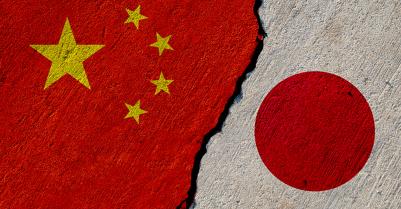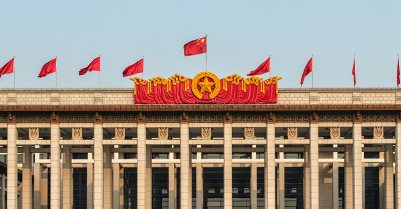-
View article
 #Economy
#EconomyChina: confidence, price war and credibility are the watchwords in this early part of the year
2024/03/26
- 2010/02/04
- 3 min
- 0
-
0
Paris, 3 February 2010 - Through the action taken by the Grameen Crédit Agricole Microfinance Foundation since it was launched, Crédit Agricole has shown its commitment to combating global poverty, working alongside the microfinance pioneer Professor Muhammad Yunus, the 2006 Nobel Peace Prize winner and founder and Chairman of the Grameen Bank.
Established in September 2008, the Grameen Crédit Agricole Microfinance Foundation received an irrevocable 50 million euros endowment from Crédit Agricole. With these funds, as well as its own governance structure and an eleven-member team, the Foundation has the resources to take long-term, disinterested action to assist institutions and companies trying to provide the poorest segments of the population with access to essential goods, and more importantly, to credit.
According to René Carron, Chairman of Crédit Agricole S.A. and Chairman of the Grameen Crédit Agricole Microfinance Foundation, “we embarked on an ambitious process a year and a half ago when we earmarked 50 million euros for microfinance through the Grameen Crédit Agricole Foundation .”
14 million euros approved for ten emerging or developing countries
Under this unique initiative - the only one of its kind in the banking industry - a total of 14 million euros in loans and guarantees has been approved for fourteen microfinance institutions (MFIs) and social business projects in ten developing or emerging countries, namely Cambodia, Kosovo, Egypt, Ethiopia, Kenya, Tanzania, Mali, Senegal, Syria and India.
These projects include:
- A loan of FCFA 328 million (€500,000) to CAURIE in Senegal, the country's sixth-largest MFI. CAURIE is a savings and loans cooperative which, at 30 June 2009, had financed the businesses of 23,100 active borrowers, all of them women.
- A US$2 million three-year loan to Hattha Kaksekar Limited (HKL), Cambodia's fourth-largest MFI. HKL has 44,000 active borrowers, of whom 79 per cent are women, and 65 per cent live in rural areas.
- Selfina, the number seven MFI in Tanzania, working solely with women. Selfina is currently helping 10,800 customers, 60 per cent of whom live in rural areas, to purchase equipment through micro-leasing.
- The Laiterie du Berger dairy in Senegal, set up by Bagoré Bathily a young Senegalese, in 2006. Laiterie du Berger makes and distributes dairy produce using milk collected from Peul herdsmen in the north of Senegal, thus providing them with a regular income. The Foundation will join the I&P fund and danone.communities to purchase 10 per cent stake in the dairy and will also provide assistance for a breeding improvement programme.
The MFIs that benefit from Foundation-approved financing represent nearly 750,000 borrowers, 92 per cent of whom are women, 52 per cent live in rural areas and 62 per cent are in sub-Saharan Africa.
The Foundation has clearly confirmed its commitment to assisting institutions and projects with a strong social and economic impact in regions that are not widely covered by existing investment funds.




